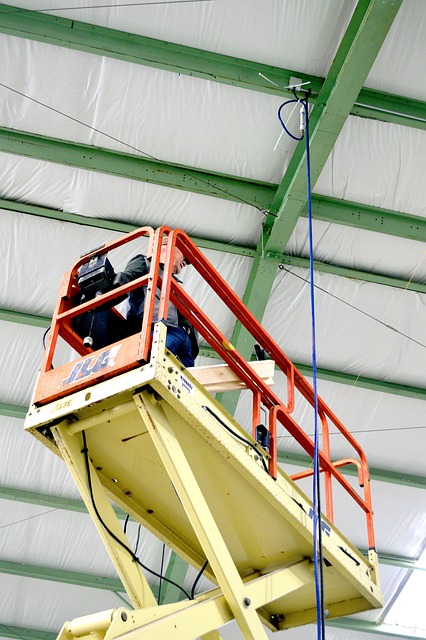When it comes to choosing the right scissor lift for your specific needs, there are a few key factors to consider. One of the most important decisions you’ll need to make is whether to opt for an electric or diesel-powered scissor lift. Both options have their own set of advantages and disadvantages, so it’s essential to weigh the pros and cons of each before making a decision.
Electric Scissor Lifts
Electric scissor lifts are powered by rechargeable batteries, making them a popular choice for indoor use. They produce zero emissions, which makes them an environmentally friendly option. Electric scissor lifts are also quieter than their diesel counterparts, which can be beneficial when working in noise-sensitive environments.
One of the main advantages of electric scissor lifts is their lower operating costs. Since they don’t require fuel, electric scissor lifts are often more cost-effective to run than diesel models. Additionally, electric scissor lifts tend to have fewer moving parts, resulting in lower maintenance and repair costs over time.
However, electric scissor lifts do have some limitations. They typically have a lower weight capacity compared to diesel models, which may not be suitable for heavy-duty applications. The battery life of electric scissor lifts can also be a concern, especially if they are used continuously throughout the day without access to charging stations.
Diesel Scissor Lifts
Diesel scissor lifts are powered by diesel engines, making them well-suited for outdoor use and rough terrain. Their higher weight capacity makes them ideal for heavy-duty applications, such as construction sites and industrial settings. Diesel scissor lifts also have a longer runtime compared to electric models, making them a practical choice for extended use.
One of the main advantages of diesel scissor lifts is their ability to handle rough terrain. Their robust design and powerful engines allow them to navigate uneven ground and steep slopes with ease. This makes diesel scissor lifts a popular choice for outdoor construction projects and maintenance work in challenging environments.
However, diesel scissor lifts do have some drawbacks. They produce emissions, which can be a concern for indoor use and environmentally sensitive areas. Diesel models also tend to be louder than electric scissor lifts, which may not be suitable for noise-restricted work sites.
Choosing the Right Option for Your Needs
When deciding between electric and diesel scissor lifts, it’s essential to consider the specific requirements of your project. If you primarily work indoors or in noise-sensitive environments, an electric scissor lift may be the more suitable option. On the other hand, if you need a scissor lift for outdoor use or heavy-duty applications, a diesel model may be the better choice.
It’s also important to consider the availability of charging stations and maintenance facilities when opting for an electric scissor lift. If access to power sources is limited at your work site, a diesel scissor lift may be a more practical choice.
Ultimately, the decision between electric and diesel scissor lifts will depend on a variety of factors, including your budget, project requirements, and environmental considerations. By carefully evaluating the pros and cons of each option, you can select the right scissor lift to meet your specific needs.
Learn More : MAINTENANCE TIPS AND COSTS FOR SCISSOR LIFTS





